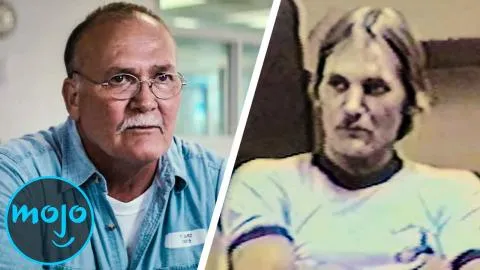Top 5 Ways People Get Wrongfully Convicted

#5: Professional Misconduct
The criminal justice system is a complex machine with a lot of moving parts. Unfortunately, the people who make up the moving parts can be all too fallible. In their drive to close a case, police officers can be susceptible to tunnel vision - focusing on a single suspect and pursuing only evidence that fits their theory. Defense attorneys can fail in their duties in countless ways: a legal counsel provided free of charge - and often overworked - might fail to explore all avenues in a client’s defense; and prosecutors can pervert the truth in pursuit of a win. Scientific experts, medical and otherwise, have also been known to present inaccurate testimony. More on THAT a little later . . .
#4: Racial Bias
Justice is supposed to be blind, but statistics paint a very different picture. According to a study conducted by the National Registry of Exonerations, a black person is seven times more likely to be wrongfully convicted of murder than a white person. Across various types of crimes, African Americans represent 47% of exonerations, despite the fact that they represent under 13% of the total population. Black people convicted of sexual assault are three and a half times more likely to be innocent, and spend on average four a half years longer in jail before exoneration. Systematically, from start to finish, including when juries are involved, race is a major factor in wrongful accusations.
#3: False Confessions & Accusations
It’s hard to imagine why an innocent person would confess to a crime, but watching footage of police interrogations gives you some idea. An interrogation is a dance, and when the suspect gets tired, they can be manipulated into saying what they think will help their situation - especially when the officers lie about leniency or the investigation. Other times, an innocent defendant up against a strong case might be coerced into pleading guilty in order to ensure a lighter sentence. Of course, false accusations and perjury also play a role in miscarriages of justice. This is especially problematic when witnesses or accusers have something to gain, as in the case of convicts or fellow defendants.
#2: Bad Science
Progress in the field of forensics has fundamentally changed the way we investigate crimes, and in many ways, this has been for the better. DNA analysis has played a major role in overturning hundreds of wrongful convictions. Unfortunately, not all scientific evidence presented in courts is created equal. The forensic hair and bite-mark comparisons relied on for decades are now widely regarded as junk science. In the infamous case of Adnan Syed, the science behind cell phone tower records was misrepresented to convict the teen for murder. According to the Innocence Project, which seeks to exonerate wrongfully accused convicts using DNA, misuse of forensic evidence has played a role in 45% of convictions later exonerated.
#1: Eyewitness Misidentification
Perhaps one of the greatest flaws in the criminal justice system comes in the form of evidence we’ve been relying on the longest - the testimony of other people. Wrongful identification of a suspect can derail an investigation while it’s still in its infancy. When the witness in question is also the victim, the trauma of the moment can make identification even more difficult. Notoriously, the wrongful conviction of Steven Avery for attempted murder in 1985 resulted from a victim misidentifying him in a live lineup. According to the Innocence Project, misidentification by witnesses plays a role in more wrongful convictions than any other contributing factor at a staggering 70%. Unfortunately, memory often just isn’t reliable.
